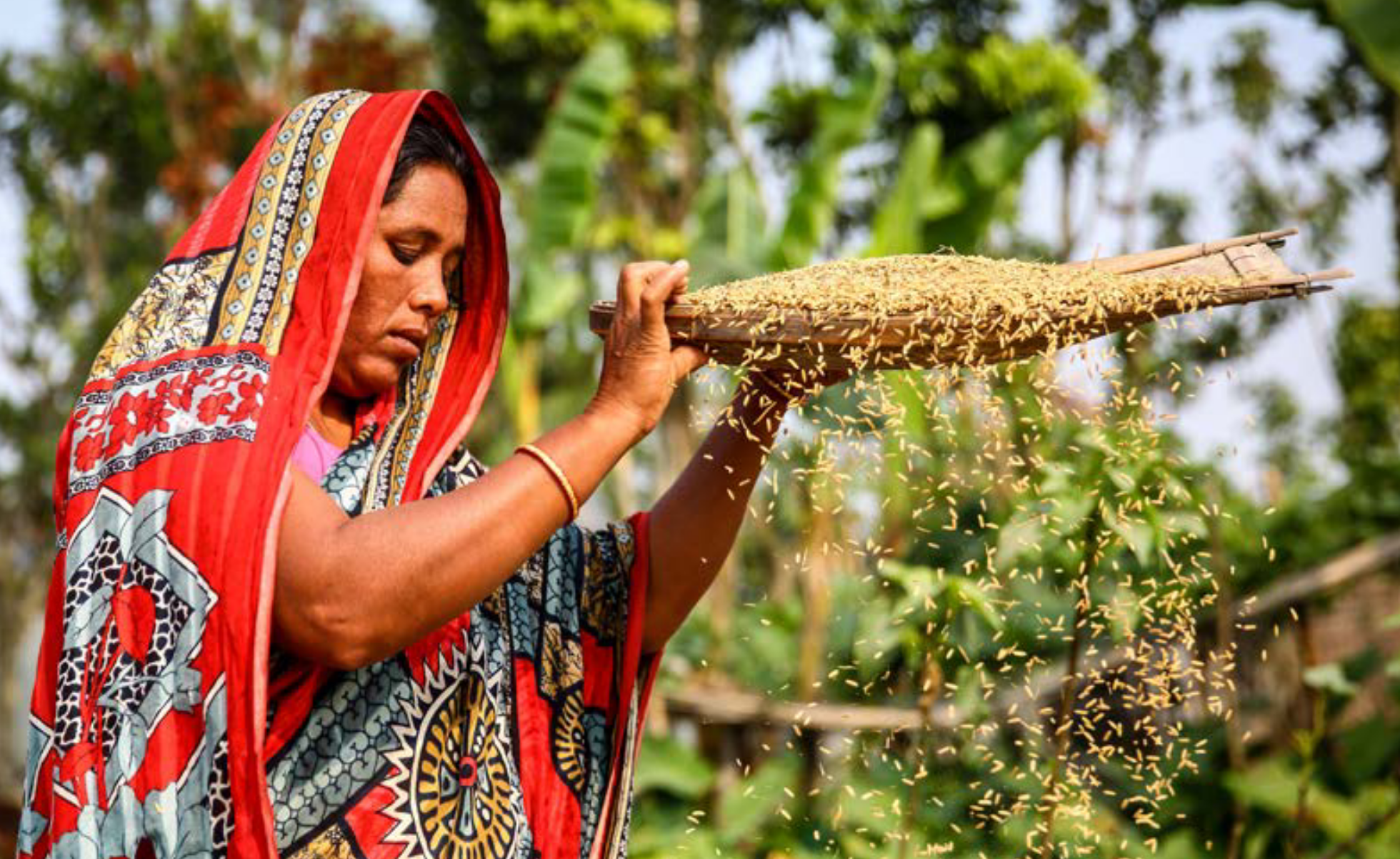Farmers, food and freedom
Transform Trade | April 2024
Farmers, food and freedom
by Hannah Conway
Introduction
Smallholder farmers play a pivotal role in feeding the
world, estimates suggest they feed between 35% and
70% of the global population. This is particularly
true for many countries in the Global South. In Africa,
there are an estimated 33 million smallholder farmers,
contributing up to 70% of the food supply.
Smallholder farmers rely on good quality seeds
for their livelihoods, often accessing them
through farmer-managed seed systems which are
underpinned by local seed exchanges, seed banks
or by saving them from the previous harvest to
reuse. The UN International Treaty on Plant Genetic
Resources for Food and Agriculture (the Seed Treaty)
recognises the importance of these practices for
food supply, livelihoods, biodiversity and climate
change mitigation:
“…plant genetic resources for food and
agriculture are the raw material indispensable
for crop genetic improvement… essential in
adapting to unpredictable environmental
changes and future human needs… [the]
contributions of farmers in all regions of the
world, particularly those in centres of origin and
diversity, in conserving, improving and making
available these resources, is the basis of Farmers’
Rights.”
However, farmers’ rights to seeds are under threat,
as national governments introduce laws which
prohibit farmers from saving, exchanging or selling
some seeds. A significant driver of this is pressure
to comply with the International Convention of the
Union for the Protection of New Varieties of Plants
1991 (UPOV91), which is often exerted on countries
in the Global South through trade and investment
agreements.
The UK is currently one of several countries using
trade deals to push countries in the Global South to
introduce restrictive seed patenting, certification and
marketing laws (herein referred to as ‘seed laws’).
At the time of writing, the UK has signed or ratified
19 trade agreements covering 68 countries which
require or encourage those countries to comply
with UPOV91. While other trade deals might not
mention UPOV91 specifically, they may contain wider
provisions on intellectual property which broadly
cover seed laws.
This report outlines the importance of freedom of
choice for farmers and the right to seeds; that is the
ability of farmers to save, exchange and sell seed both
for livelihoods and for adapting to climate change. It
recommends that the UK Government removes and
renegotiates the seed law provisions in its trade deals
so that they recognise farmers’ rights to seeds, in line
with commitments it has made in UN agreements.
Read the report (pdf)






